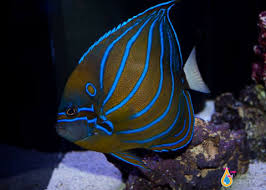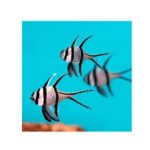
In Chinese culture, dragons hold a revered and fascinating place, symbolizing power, strength, and good fortune. These mythical creatures have been ingrained in the cultural and spiritual fabric of China for thousands of years, permeating various aspects of everyday life, from mythology to folk traditions and grand celebrations. The significance of dragons transcends merely their mythical role and extends into religious practices, festivals, and even the very symbolism of power and prosperity. This article delves into the rich presence of dragons in Chinese folklore, exploring their evolution from ancient mythological figures to their enduring prominence in contemporary festivals.
1. The Mythological Origins of the Dragon in Chinese Culture
The dragon is a central figure in Chinese mythology, often seen as a divine creature that possesses immense power and control over natural forces. Unlike the fearsome and destructive dragons of Western folklore, the Chinese dragon is a symbol of auspiciousness, prosperity, and benevolence. The dragon’s importance is rooted in its dual nature, embodying both elements of destruction and creation. It represents the balance between heaven and earth, as well as the harmony of natural elements.
The Creation Myth
One of the most well-known creation myths in Chinese folklore involves the Pangu, the first living being in Chinese mythology. According to the myth, Pangu created the universe by separating the heavens and the earth. It is said that when Pangu died, his body transformed into various elements of the natural world, including the earth, mountains, rivers, and the dragon. In this sense, the dragon was born from the very essence of the universe, linking it with creation and cosmic power.
The dragon in Chinese mythology is often linked with water, particularly the control of rivers, lakes, and seas. The Dragon Kings, mythical rulers of water, are depicted as powerful and benevolent deities who govern over these bodies of water. Each of the four Dragon Kings rules one of the major seas in Chinese mythology, and their authority extends to the ability to control rain and storms, a power that was crucial for agricultural societies in ancient China. The Chinese dragon, therefore, is not just a mythological creature but also a symbol of the cyclical nature of life, providing the much-needed rain for crops to flourish.
The Emperor’s Connection to the Dragon
In Chinese folklore, the emperor is often referred to as the “Dragon Son of Heaven”, emphasizing the connection between the emperor and the divine. The emperor’s authority was thought to be derived from his divine link to the dragon, which represented the heavens and all the forces of nature. This belief in the emperor’s connection to the dragon reinforced the idea of the ruler as a mediator between heaven and earth, with the dragon being the vehicle through which divine power was channeled to maintain order and balance in the empire.
The dragon’s association with the emperor extended to many aspects of imperial life, including the design of royal symbols, the imperial palace, and even the emperor’s robes. The dragon was often embroidered on the emperor’s attire, and dragon motifs adorned the palaces and temples. The symbolism of the dragon served not only as a representation of the emperor’s divine right to rule but also as a reminder of the celestial forces that governed the empire.
2. The Role of Dragons in Chinese Folk Traditions
Beyond mythology, dragons have a significant presence in Chinese folk traditions. Their symbolism is evident in the customs, stories, and rituals that have been passed down through generations. In local communities, dragons are viewed as protectors of families, villages, and towns, and they are often invoked in times of need, particularly during festivals and ceremonies.
The Dragon as a Protector
In Chinese folk belief, the dragon is seen as a guardian of people, providing protection against evil spirits, misfortune, and natural disasters. The dragon’s association with water and rain also made it a key figure in agricultural rituals. Farmers would invoke the power of the dragon to ensure an abundant harvest and to protect crops from drought or flooding. In some regions, dragon-shaped statues or carvings were placed in fields and near water sources as protective charms.
Additionally, the dragon was seen as a defender of the family unit. It was believed that dragons could ward off bad luck, illness, and misfortune, ensuring the well-being of loved ones. Families would display dragon images in their homes to promote health, wealth, and happiness. The dragon’s protective qualities were also invoked during major life events such as weddings, births, and funerals, where dragon symbols were believed to bring good fortune and drive away negative energies.
The Dragon as a Symbol of Prosperity
The dragon’s connection to prosperity is rooted in its association with the imperial throne and the earth’s natural resources. In Chinese folk culture, dragons are often seen as harbingers of wealth and success. As a result, many festivals and celebrations involve dragon motifs to attract good fortune and ensure a prosperous future.
In particular, the dragon and phoenix pairing is a common motif in Chinese wedding customs, symbolizing harmony and the coming together of opposites. The dragon represents the groom, while the phoenix represents the bride, and together they embody balance, fertility, and prosperity. This pairing is meant to bless the couple with happiness, success, and offspring. Dragon-themed decorations and offerings are often used to enhance the spiritual atmosphere of wedding ceremonies, ensuring that the marriage will be fruitful and filled with blessings.
3. The Dragon in Chinese Festivals: A Celebration of Power and Fortune
Dragons are prominently featured in many of China’s most important festivals, where they are celebrated as symbols of strength, protection, and prosperity. The presence of dragons during these festivals highlights their continued importance in Chinese cultural life and their role in ensuring harmony, good fortune, and success.
The Dragon Boat Festival (Duanwu Festival)
One of the most famous festivals featuring dragons is the Dragon Boat Festival (Duanwu Festival), held on the fifth day of the fifth month of the lunar calendar. This vibrant celebration honors the life of Qu Yuan, a poet and statesman, but it is also closely tied to dragon worship. The most iconic feature of this festival is the dragon boat races, where teams of rowers compete in long, narrow boats designed to resemble dragons.
The festival’s association with dragons is rooted in the belief that the dragon is a guardian spirit of the water, capable of providing blessings, protection, and good fortune. In addition to the boat races, the festival includes other customs such as eating zongzi (rice dumplings wrapped in leaves) and hanging pouches of herbs to ward off evil spirits. These customs are meant to invoke the dragon’s power and ensure the well-being of the community.
Chinese New Year Celebrations
Dragons are also a central feature of Chinese New Year celebrations, where they are seen as symbols of good luck and fortune for the coming year. The dragon dance, a lively performance where a team of dancers manipulate a dragon-shaped costume, is one of the most recognizable elements of the Chinese New Year parade. The dragon is believed to chase away evil spirits and bring blessings for prosperity and success in the year ahead.
The Chinese New Year dragon dance is often accompanied by firecrackers, fireworks, and other rituals meant to drive away negative energy and welcome in positive forces. The dragon, as the embodiment of good fortune and protection, is the star of the show, moving gracefully through the streets and symbolizing the hope for a fruitful and prosperous year.
The Lantern Festival
The Lantern Festival, celebrated on the fifteenth day of the Chinese New Year, also features dragons prominently in its festivities. One of the key attractions of the Lantern Festival is the dragon lantern parade, where giant dragon-shaped lanterns light up the night sky, creating a stunning spectacle of color and movement. This event is meant to symbolize the triumph of light over darkness and the arrival of a new beginning.
During the festival, people often light and release lanterns that are decorated with dragon motifs, believing that the dragon will bring good luck and dispel negative energy. The dragon lanterns are particularly significant as they represent the spirit of the dragon and its role in ensuring the prosperity and well-being of the people.
4. Conclusion: The Enduring Legacy of Dragons in Chinese Folklore and Festivals
Dragons occupy a unique and cherished position in Chinese folklore, from their mythical origins as divine creatures to their prominent role in festivals and cultural traditions. Whether as protectors, bringers of prosperity, or symbols of imperial power, dragons are a constant presence in the cultural imagination of the Chinese people.
Their evolution from mythological beings associated with cosmic forces to their central role in folk rituals and celebrations reflects the deep respect and reverence with which the Chinese view dragons. As symbols of strength, power, and good fortune, dragons continue to inspire awe and wonder in Chinese culture, ensuring their place in festivals and ceremonies for generations to come.
In modern times, the legacy of the dragon endures, with its imagery still appearing in art, literature, and popular culture. The enduring presence of dragons in Chinese festivals and rituals serves as a testament to the timeless power and significance of this mythical creature, which continues to unite the past and present in the collective memory of the Chinese people.









